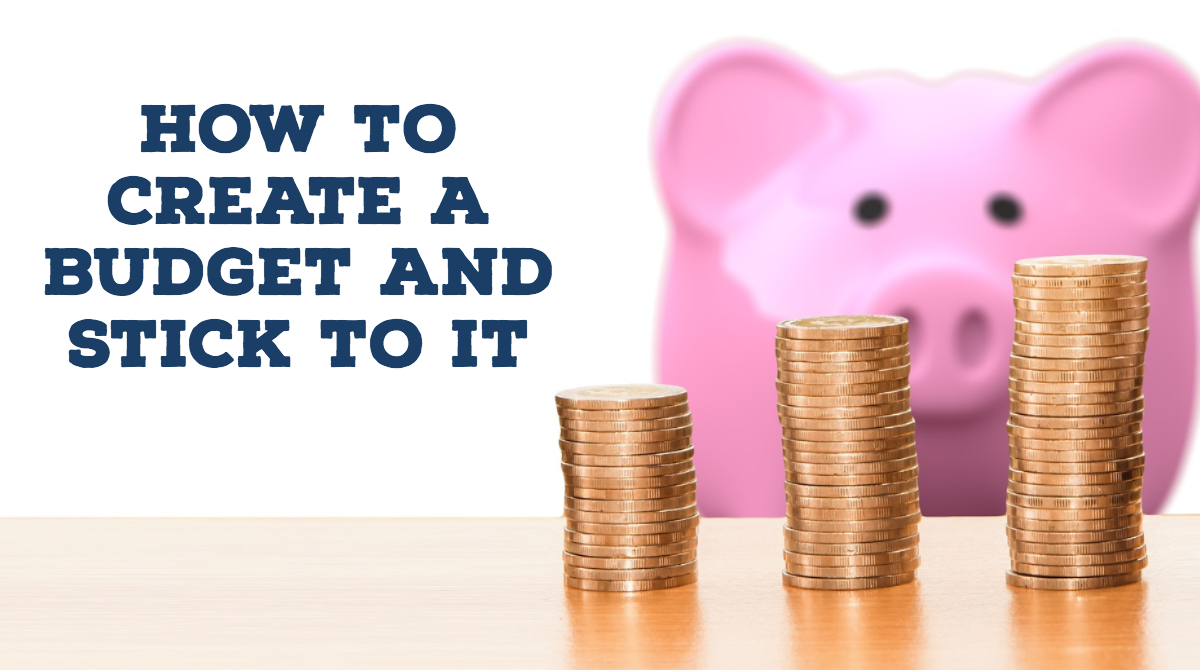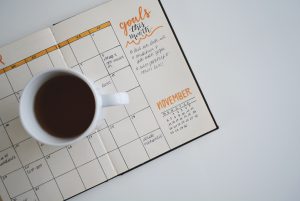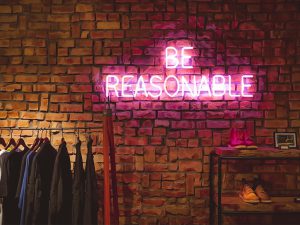
For most of us, financial stability doesn’t happen by accident. Instead, it requires planning ahead – and sticking to your plan. The first step toward putting yourself in a good financial position is coming up with a budget and sticking to it. Admittedly, this is easier said than done and doesn’t sound that very exciting or all that much fun. However, sticking to your budget doesn’t mean you can’t indulge in the finer things in life; it just means you need to find room in your budget for them. With that in mind, here are some ways that you can create a budget and stick to it.
Compare Income to Expenses


The first step in creating a budget is to take stock of both your income and your expenses. Hopefully, the former is higher than the latter; otherwise, this will be a lot harder than expected. It’s best to add up all of your expenses over the past six months, possibly a year. This will help cover expenses that you may only have once or twice a year, including insurance payments or seasonal gifts. It’s also not a bad idea to add 10 – 15% to that number to account for any unexpected expenses.
Calculate a Maximum Budget
Once you’ve added up all of your expenses, you will then compare that number to the income you’ve had over the last six months or a year. This should include your salary, as well as any money you make from side jobs or other sources. Once you’ve calculated your income, you’ll know the maximum amount of money you can put into your budget.
Don’t Forget the Unexpected
Of course, you’ll want a rainy-day fund, so you may prefer not dedicated budget your entire salary. Depending on how your income compares to your expenses, you’ll also know how tight you have to be with your new budget.
Set Goals
Like most things in life, it’s never a bad idea to set goals for yourself when creating a budget. These should be both short-term and long-term goals. It’s best to have goals to help keep you motivated and remind yourself why you have a budget and why you want to stick to it. Maybe you want to save up to buy a house or take a once-in-a-lifetime trip. Either way, keep those bigger, longer-term goals in the back of your mind.
Meanwhile, short-term goals — like coming in under budget next month or cutting spending in a certain area — can help keep you focused on maintaining your budget on a daily basis. Best of all, accomplishing these will help you reach your long-term goals.
Keep a Calendar
As mentioned, part of keeping a budget is looking at things over the long haul, usually six months or one year at a time. This is why staying on a budget often means keeping a calendar of important events. Keep in mind that your expenses won’t be the same every month. You’ll have birthdays, weddings, and holidays where you’ll need to find a little extra in the budget to buy gifts for others. Your home expenses and cost of utilities can also fluctuate during different times of the year. Keeping a calendar can help you plan ahead and alter your budget if you expect your expenses to rise or fall in a particular month.
Be Reasonable and Realistic
Obviously, you want to stick to the budget you’ve created, but you don’t want to go overboard and become obsessive about it. There will be times when circumstances outside of your control force you to go over budget. You can’t stress out when these things happen, just move on and try to make up for it the next month. It’s unhealthy to dwell, and healthcare isn’t cheap.
You also have to accept that you won’t always follow your budget perfectly. Occasionally, you’ll need to indulge and treat yourself to something, even if it means going a little over your budget. Every life is about the little things and the big things. The good life is about both.
Wasted Food Is Wasted Money
Plan your meals ahead of time. While food is typically the most significant part of anyone’s budget, many people have trouble controlling how much they spend every month on food. This is why it’s imperative to plan out your meals ahead of time. Every time you go grocery shopping, you should have your breakfast, lunch, and dinner planned out between now and the next time you plan to go shopping. Budget wise, whatever you like to eat is likely fine, but every food item you buy should be bought with a purpose. Otherwise, it’s far too easy to spend money on food that you don’t need or won’t end up eating.
Limit Impulse Purchases
It likely goes without saying that impulse purchases are the mortal enemy of a healthy budget. Delivery and takeout are easy examples, but countless more exist. Therefore, it’s imperative to find a way to resist making impulse purchases on things you weren’t planning on buying. If you catch yourself considering an impulse purchase, stop and wait. If it’s an expensive item, wait a while and give yourself time to save up for it. During that time, you can also ask yourself if it’s something you really need and if it’s worth stretching your budget. This doesn’t mean you can’t buy it eventually. Instead of buying it right then and there, make it a goal.
Pay with Cash
Paying with cash is one strategy that can help you stick to your budget. Studies have shown that a significant number of people are less careful about how much they spend when using a credit card compared to paying with cash. With cash, people can literally see the money leaving their wallet and will be less likely to buy things they aren’t sure they need. When they pay with a credit card, people don’t always realize how much they’ve spent until the bill comes a few weeks later. By then, the damage has been done and you’re that much closer to going over your budget.
Stay Flexible
Sticking to a budget is always going to be a fluid situation. Remember that your expenses will often change from one month to the next. Depending on your profession, your income could change as well. This is why it’s vital that you remain flexible and not look at your budget as being exclusively black and white. You should be re-evaluating your budget on a regular basis and always staying open-minded to changes. There will be times when you need to tighten up your finances, but there may also be times when you can increase your budget and allow yourself to spend a little more. The key is simply to always remain flexible.
Get Some Supervision
You don’t have to think about being on a budget like being on parole, but it can help to feel accountable to someone. Consider asking a spouse, family member, or friend to help you create a budget and stick to it. You can have that person check up on you periodically to make sure you’re spending responsibly and not going over budget. If you know that someone is going to ask about how much you’ve spent, you’ll probably be less likely to make frivolous purchases that make it harder to stick to your budget. It also doesn’t hurt to have someone by your side to help you decide how much to spend in certain areas.








